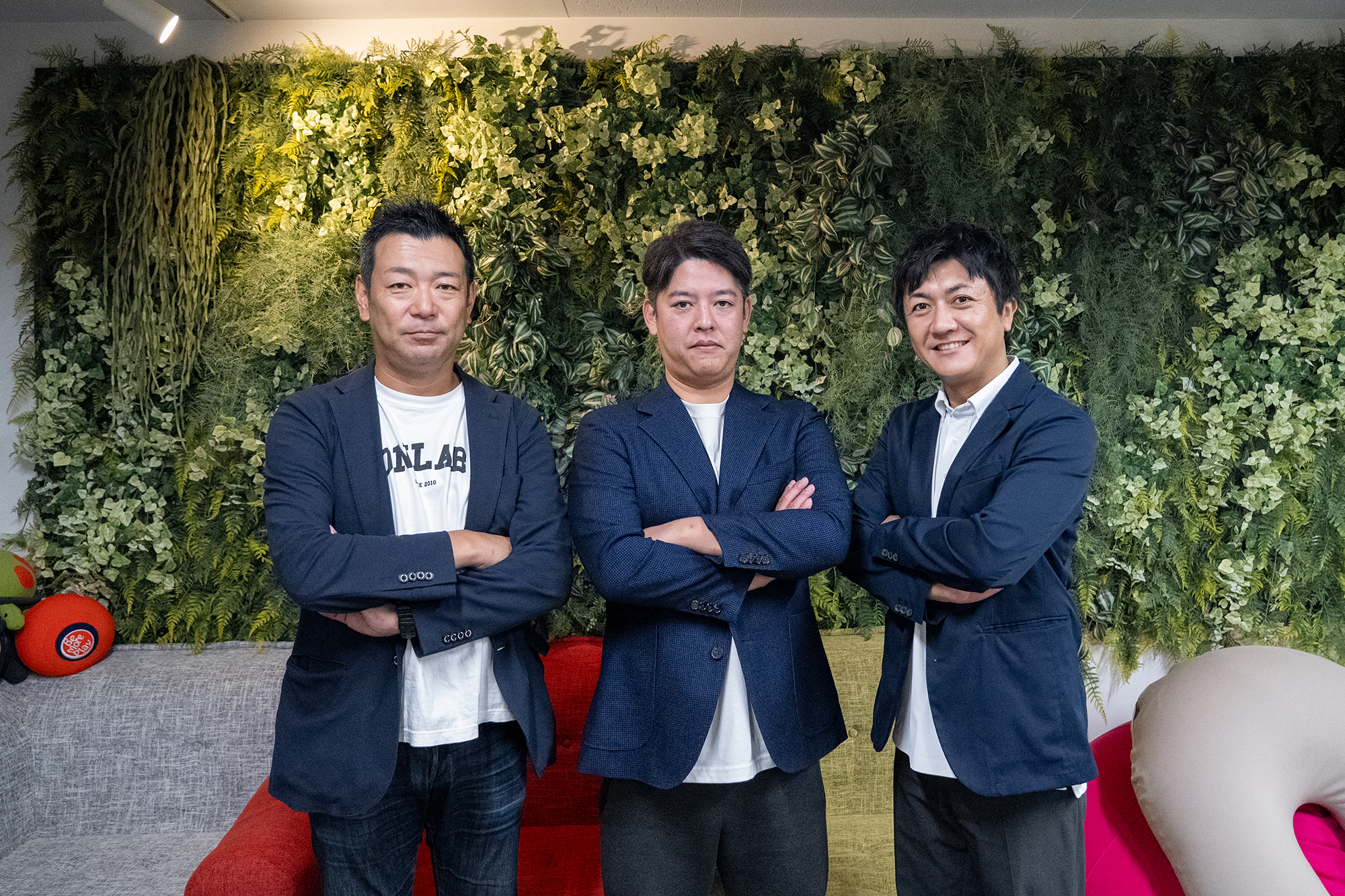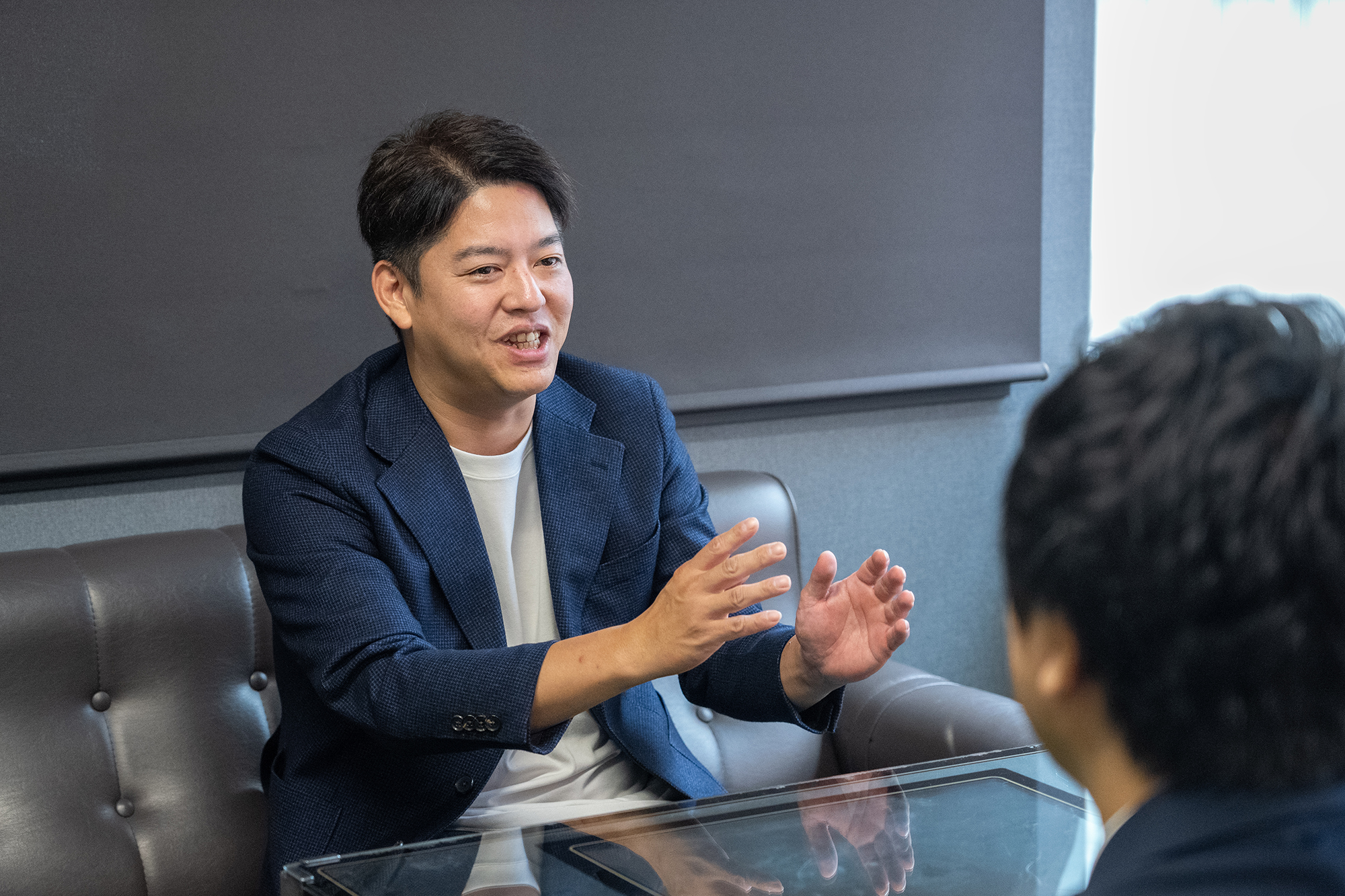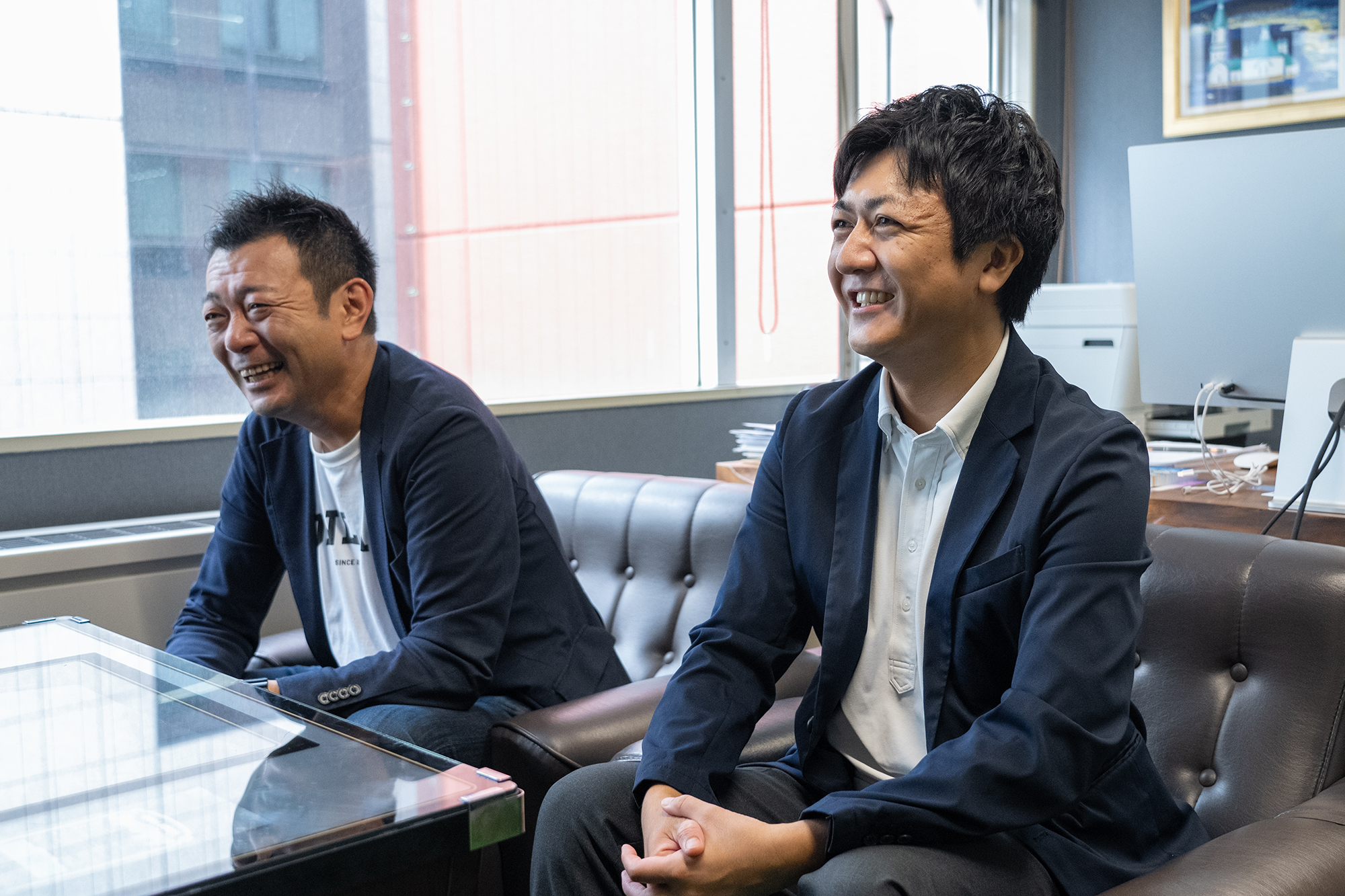Major Room for Hokkaido IT Industry Growth: Engineers Shifting From Tokyo Orders to Independent Product Development
A nationwide issue in Japan is the insufficient number of information technology (IT) human resources, a shortage predicted to total 400,000 to 800,000 workers in 2030. Hokkaido is drawing a great deal of attention in this industry as many companies are opening IT offices in the prefecture, starting with the semiconductor manufacturer Rapidus. Members of the industry, government, and academia are working together to cultivate IT human resources.
FEELIST, an IT company based in the City of Sapporo, made a fresh start when it joined the Digital Garage Group on July 1 and changed its name to “DG Feelist.” What is the future vision of DG Feelist, which is part of an industry undergoing transformation? We spoke with three key members: President Toshifumi Kino, Chairman Tomoya Sasaki, and Director Misaki Uto.

Interviewees
Tomoya Sasaki
Corporate Officer, Digital Garage; Chairman, DG Feelist
Toshifumi Kino
President, DG Feelist
Misaki Uto
Deputy head, DG Technology Division; Director, DG Feelist
Two important points for hiring and training amidst an IT worker shortage
The Hokkaido IT industry is experiencing rapid growth. For instance, SAKURA internet, the first domestic company authorized to provide cloud services to the national government, opened a data center in Ishikari City. Rapidus plans to start operating its Chitose factory in April 2025. This year, the Hokkaido Prefectural Government, City of Sapporo, Hokkaido University, and Nitori Holdings agreed to extend their partnership agreement for IT human resource development.
Hokkaido is striving to draw many IT companies to the prefecture. One factor behind these efforts is the issue of Hokkaido’s natural population decline (calculated by subtracting births from deaths), which was second only to Tokyo in 2023. Predictions say that Hokkaido’s population will decrease by 27% between 2020 and 2050. Kino has been aware of this and other issues while working in Hokkaido’s IT industry for many years.
“In Hokkaido’s IT industry, most of the time Tokyo companies try to expand their businesses by entering the Hokkaido market or establishing subsidiaries. And like other parts of Japan, Hokkaido is clearly facing economic stagnation and a shrinking population. It isn’t easy for Hokkaido corporations to survive. That’s why we must take on the challenge of differentiating DG Feelist from other companies and obtaining talented IT human resources.”
This trend is further propelled by the increasing number of companies that allow remote work, meaning workers do not have to reside in Tokyo. More people are returning to their hometowns in Hokkaido, moving to their spouse’s home region, or finding work in the prefecture.

Kino, Sasaki, and Uto said there are two important points to keep in mind while hiring and training IT human resources. The first is working to understand the needs of recent graduates and young, inexperienced employees. The second point is providing solid training. Kino said, “Inexperienced workers are more focused on growth than on salaries. It’s important to think about how to find rough ‘diamonds’ and polish them through training.” DG Feelist is focused on employee education. It also helps them purchase books and holds get-togethers with family members, creating a friendly culture for employees.
Developing unique products and services to survive the generative AI era
Founded by Kino in 2015, FEELIST Inc. (currently DG Feelist) is a company of 120 engineers. It is involved in nearshore services, web app development, and other businesses, and it joined the DG Group because of Hokkaido’s unique characteristics.
“Most content, product, or service companies are concentrated in Tokyo or Osaka—there are very few in Hokkaido and other provincial cities. We felt that FEELIST had to enter these fields. Product and service development will give us new ‘weapons’ to fight in the era when there are fewer programs and generative AI is used more frequently.”
FEELIST considered joining a group company when it was exploring the question of how to develop new, competitive products by itself in the current market.
At the same time, the Digital Garage Group was searching for a company of engineers with the speed and toughness needed to strengthen its business development foundation. Uto is also deputy head of the DG Technology Division. He explained, “We’ve increased our project managers and product designers for the roughly 20 projects that are underway at the same time. However, we were facing the challenge of how to enhance our engineering team.”
The two companies were brought together by their longstanding ties in Hokkaido. One key figure was Sasaki, who also serves as representative director of D2 Garage, a joint venture by Digital Garage and The Hokkaido Shimbun Press that is working to build a startup ecosystem in Hokkaido. Sasaki is part of the DRIVE NEW HOKKAIDO! employers’ organization, which has members who are mergers and acquisitions (M&A) experts. He was introduced to Kino, who leads FEELIST’s team of talented engineers.
Reflecting on the three months since DG Feelist joined the Digital Garage Group, Kino said the biggest change has been a transformed awareness within the company. “Our team had strong skills with Java, a versatile programming language that provides fast processing speed, and PHP, a programming language that is ideal for creating dynamic content. Basically, we were contracted by other companies to complete projects, and engineers had the sense that their jobs ended when the products were delivered. Now, I think our engineers are becoming aware of using their skills to develop new services. Personally, I feel like there are more people I can discuss things with, and I still have the same scope for making decisions as before.”
According to Uto, the entire Group is working together on businesses such as Musubell, A cloud service specializing in real estate sales and contract support; point malls; AppPay, a third-party payment service; and services offered by DG Financial Technology.

Striving to be Hokkaido’s top IT company, with an eye on overseas engineers
Speaking about the company’s future prospects, Sasaki said, “Founded on FEELIST’s track record, I believe we will gain even more vitality and become a valuable company by combining Digital Garage’s products with our educational philosophy, familial atmosphere, employee morale, and dedication to growth. There is a great deal of room for growth in Hokkaido. Our future goal is to be Hokkaido’s most well-known IT company.”
Uto enthusiastically stated, “The two company cultures will generate synergy. I want to become Hokkaido’s number-one company as we mutually improve and learn from each other. I hope DG Feelist will be an appealing company that gives IT engineers the opportunity to grow and feel they are contributing to society.”
The company is also turning its eyes abroad. “To become a top company, we must build a development structure with overseas engineers,” Kino stated. He also said that DG Feelist is currently focusing on Vietnam, Cambodia, the Philippines, Malaysia, and other countries. It will be interesting to see what the future holds for this team of engineers, as well as for Hokkaido’s expanding IT industry.